The Newseum is one of the new modern boys on the block here along Pennsylvania Ave right here in Washington DC. Opened in 1997, it’s essentially a museum focused on the news, thus the name New-seum. Decked in a modern glass and beam facade, it’s one of the only few museums here with a modern design flair- a much needed break from all the old traditional looking ones we see along the National Mall. You will need some minor security checks before entering the museum grounds. Entry to the museum is $22 for adults and $10 for students, so do have your ID and student card with you for that awesome discount.
In five years since it’s opening, the Newseum attracted more than 2.25 million visitors annually. The museum itself is an interactive one, one reflecting the modern age and time of data and communications, which the whole museum seems to resolve on. The museum uses a combination of audio and visual means to get the message of the news to you, this is done to you through 15 theaters various and 14 unique galleries dotted all along the seven-floored, 250000 square-foot complex.
The building is semi-functional, complete with live audio recording and press rooms, the large atrium is home to a large jumbo screen and a suspended decorative news helicopter overlooking the museum’s main lobby. You start off with a a pre-show and introduction to the place at the basement theaters, which is also home to the museum’s food court and the entrance to the 4D theater. The Berlin wall display resides here too. The Newseum’s Berlin Wall gallery here tells the story of the rise and fall of the iconic wall, as illustrated with the world’s largest sectioned display of the Berlin Wall outside Germany, situated right inside the museum’s grounds itself. You start off exploring the museum from the top down, first by taking the glass lifts right to the 7th top exhibition floor.
From here, you have access to the outdoor balcony overlooking the east-west roads of Pennsylvania Avenue and 9th Street. The Washington Capitol can be seen in the distance just at the end of the street and looks like they have a cabinet in session! The balcony also forms part of the panoramic display overlooking the national mall with iconic structures, monuments and museums pointed by signs along the balcony railings itself.
The showcase of the Sunday funnies in our newspapers can be found here too, with a run down memory lane on some very old cartoons, including some you never knew existed. Too bad the papers in Singapore don’t have much of a sense of humor to appreciate these funnies, all to bring the laughter and comic relief on our dailies.
There is an extensive permanent collection of the news coverage and the ground work involved in covering hurricane Katrina, both from the support and news reporting elements. All these stories and experiences were all captured by battle hardened journalists, who survived the elements and lived to tell their tale and stories out to the world as it is. These experiences are all engraved in stone through photos, headliners and savaged property including stories of the pain, causalities and the devastation involved in the disaster.
The news all around the world section features an archive and headliners of various Today’s Front Pages from more than 80 international newspapers, including every single major front page news published in the United States spanning decades into history since printed news in the states started. They are all preserved and showcased in protective sealed drawers viewable by all. It’s almost like a walk through time, digging into news relating to iconic events of a yesteryear. Also lined along the perimeter and going with the exhibits are notable timelines in history, particularly those affecting the press and milestones in news reporting, print and digital.
Other galleries here present topics including news history, including an interesting coverage of the life of the presidents’ personal photographer, as shown on one of the many large theater screens here. There is an extensive display of the September 11 attacks too, with a mortgage of newspaper headliners all over the world covering the attacks on that fateful day in New York. As with the ever changing world of news, the displays are regularly updated too, with the latest headline at my point of visitation announcing Osama’s bin Laden’s death. There is a video showcase of the attacks there which still today, touches the lives of many who watches it, with complimentary tissues provided at the exit of the theater if so be required.
The world news section focuses on what drives the news here in the states, as backed by the First Amendment by the United States Constitution which gives the world press freedom and the history of the Internet, TV and radio. These includes the 5 freedoms: freedom of religion, freedom of speech, freedom of the press, freedom to petition and assembly and freedom of association. The mission of these “freedoms” is to help the public and the news media understand one another better and raise public awareness- part of the important role a free press plays in a proper democratic society. Moreover, these are rights and power for the citizens to decide what is right, such as interfering with the right to peaceably assemble or prohibiting the petitioning for a governmental redress of grievances just to name afew. Not surprising and shockingly in this modern times, Singapore is still one of the few Red regions mark on the world map where news is still ironically tightly controlled by the ruling parties.
What can a bullet-ridden media truck and journalist bullet proof flack jacket have to do with the next display? Well the dangers of war news reporting that is. This section of the museum focuses on one of the more dangerous and gruesome aspects of journalism- battlefield and warzone reporting, particularly those in the middle east and riots. Showcased are the hazards of frontline reporting, particularly those involving gunfights with near encounters and experiences as told by field reporters, photographers and cameramen alike. There are several photos showing journalists donning helmets and media labeled bullet proof vests dodging for cover and bracing overhead gun fire, as both bullets & shrapnel fly all over them from both attacking sides with their “Media” tags the only form of identification of their neutral identity out on the field, these pictures paint more than a thousand words.
Not too far off here is the Journalists Memorial. It remembers and honors those who died pursuing the news from all over the world. The glass cladded memorial has every known late journalist name etched out on the west wing of the building, while a montage on the sides displays the photographs and names of the journalists themselves.
With print fast becoming an alternative method of delivering the news, the Internet TV and radio section touches on various alternate forms of media, particularly those having a larger influence on the younger generation now and that of the new electronic information era. Here, you see the evolution of news through the times where the humble radio served as the primary non-print means of delivering the news, giving birth to the whole concept of live reporting to the masses too. Then came the TV and eventually the presently formidable power of the Internet and it’s social networks as an effective form of information propagation to the masses.
The fun part of the museum resides on the second floors and near the end of the museum tour. Here, you can try your hand at some interactive games or test you mantle at journalism and news reporting skills at the various interactive computers kiosks. Want to take your knowledge from the displays and go live on Camera? Have a go at reporting live at a hurricane, the Capitol or basketball match in front of a teleprompter camera at various simulated venues courtesy of a blue screen. The fun here is suitable for both the young and old alike. Few of the functional displays on this floor includes a live Press room, where a live broadcast was seen during my visit as well as a TV broadcasting control room of how the TV broadcasting stuff actually works.
There is a substantial collection of Pulitzer prize collections here too, featuring 400 audio clips and 1,000 prize photos with the annual awards awarded by Columbia University. The Pulitzer prizes ranges from prizes in letters to books published in the US including fiction, biography, general non-fiction, history and poetry. Focused here are mostly the photographic and audio entries.
Last but not least, there is a 4D theater. At regular timed intervals, guests can enter into the world of news reporting through a 40 minute 3D show touching on how journalism shaped the modern world with the freedom of speech through case studies. One such topic is that of investigative journalism at a women’s mental asylum and the horror it unraveled. Overal, the show was impressive complete with smoke water and motion effects, all telling the story of the free press with various key examples and how it changed the world completely.
In all, the Newseum is a rather unique modern museum on it’s own and is highly recommended despite the high entrance fee. The news had changed much of the world today, something we all seldom realize and often take for granted. And I am glad that this museum does very just that in not only educating visitors but showcasing our unsung heroes of journalism, bringing how the news is brought to you, by you. Now that’s news!
- New York City & Brooklyn (Photos: New York City & Brooklyn)
- New York Hudson River Cruise, Wall street and Rockefeller Center
- American Museum of Natural History (New York) (Photos: AMNH)
- Washington D.C. (Photos: Washington D.C.)
- Newseum, Washington DC (Photos: The Newseum)
- National Gallery of Art, Washington (Photos: National Gallery of Art)
- Arlington National Cemetery, Washington DC (Photos: Arlington National Cemetery)
- Smithsonian Natural History Museum (Photos: NMNH)
- Smithsonian Air and Space Museum (Photos: Air & Space Museum)
- Orlando, Florida & Magic Kingdom at Walt Disney World Resort (Photos: Disney Magic Kingdom)
- Orlando Disneyland Hollywood (MGM) Studios (Photos: Disneyland Hollywood Studios)
- NASA- Kennedy Space Center, Merritt Island, Cape Canaveral (Photos: Kennedy Space Center)
- Islands of Adventure, Orlando Florida (Photos: Islands of Adventure)
- Universal Studios Orlando, Florida (Photos: Universal Studios Orlando)
- Miami Florida, South Beach and Aventura mall (Photos: Miami Florida)
- Pittsburgh, Pennsylvania (Photos: Pittsburgh, Pennsylvania)
- Cedar Point coaster kingdom, Sandusky Ohio (Photos: Cedar Point)


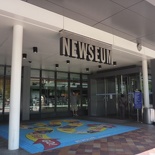
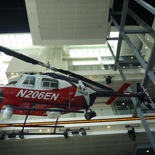
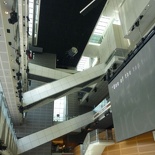
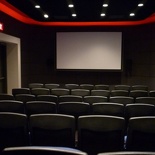
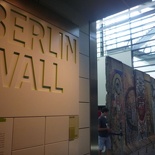
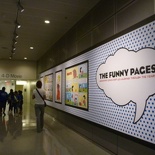
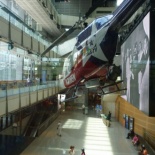

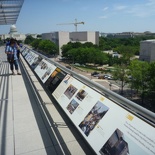
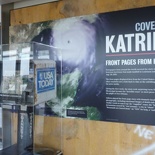
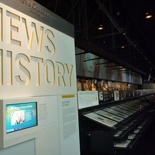
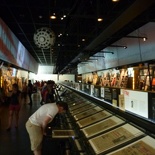
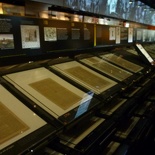
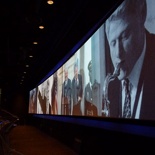
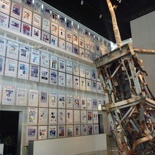
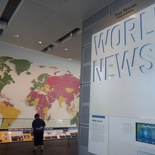
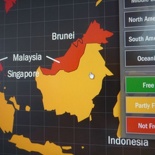
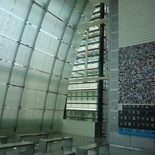
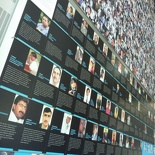
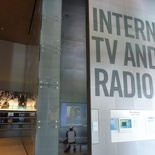
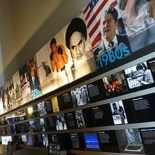
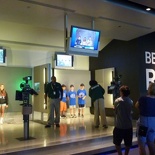
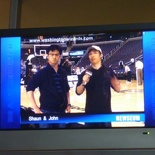
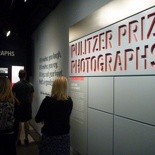
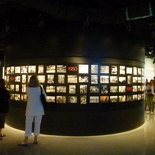
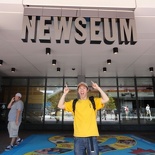
[…] parts of the Berlin wall are removed and displayed in Museums around the world, like the Newseum in Washington DC. Also, you can purchase a small souvenir piece of the Berlin wall from various giftshops all around […]